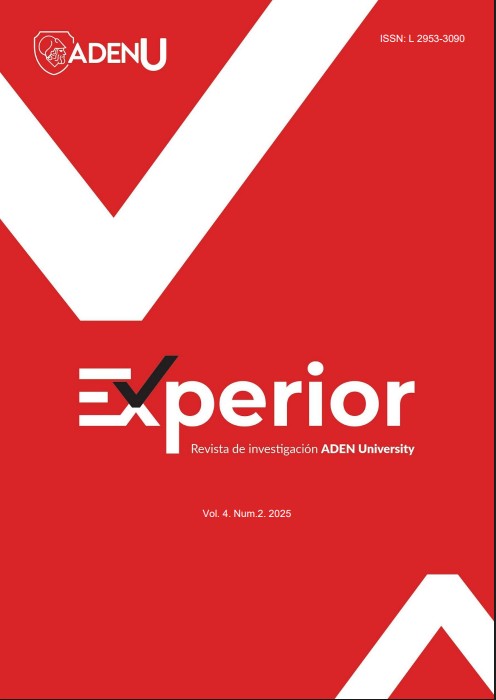Epistemological bases of administration related to the development of corporate social responsibility
DOI:
https://doi.org/10.56880/experior42.7Keywords:
corporate social responsibility, epistemology, administrative theories, management, stakeholdersAbstract
Corporate social responsibility has evolved from a philanthropic practice to a consolidated strategic axis in modern administration. This research aims to analyze the epistemological foundations of corporate social responsibility in the administrative framework, highlighting its historical evolution and its transformation from the theoretical and normative perspectives that have influenced its institutionalization. A documentary methodology based on a review of sources was used, focusing on terms such as epistemology, CSR, and administrative theories, to identify the philosophical currents that have shaped the concept over time. Although the antecedents of CSR are found in ancient ethical standards, its modern formalization began in 1953 with Howard Bowen. Since then, there has been an epistemological shift from positivism toward interpretive and critical approaches, with the emergence of models such as Carroll's Pyramid, Stakeholder Theory, and the Triple Bottom Line. The discussion highlights how these approaches have redefined CSR as part of the business strategy, aimed at generating shared value and responding to ethical, regulatory and social demands, concluding that CSR today represents an essential tool for corporate sustainability and reputation, covering topics such as diversity, ethics and governance.
Downloads
References
Amato, C. N. (2021). Investigación en Responsabilidad Social Empresaria y Sustentabilidad Corporativa: evolución, tensiones actuales y perspectivas futuras. Cuadernos de Administración, 34, 1-19. https://doi.org/10.11144/Javeriana.cao34.irsesc
Austin, J. E., & Seitanidi, M. M. (2012a). Collaborative value creation: A review of partnering between nonprofits and businesses: Part I. Value creation spectrum and collaboration stages. Nonprofit and voluntary sector quarterly, 41(5), 726-758. https://doi.org/10.1177/0899764012450777
Austin, J. E., & Seitanidi, M. M. (2012b). Collaborative value creation: A review of partnering between nonprofits and businesses. Part 2: Partnership processes and outcomes. Nonprofit and Voluntary Sector Quarterly, 41(6), 929-968. https://doi.org/10.1177/0899764012454685
Bernays, E. L. [1923] (2015). Crystallizing public opinion. Open Road Media.
Bigné, E., Alvarado, A., Currás, R. y Rivera, J. (2010). Latest evolution of academic research in corporate social responsibility: an empirical analysis. Social Responsibility Journal, 6(3), 332-344. https://doi.org/10.1108/17471111011064726
Bowen, H. R. (1953). Social responsibilities of the businessman. Harper & Brothers.
Carroll, A. B. (1979). A three-dimensional conceptual model of corporate performance. Academy of management review, 4(4), 497-505. https://doi.org/10.5465/amr.1979.4498296
Comisión de Comunidades Europeas. (2001). Libro Verde: fomentar un marco europeo par ala responsabilidad social de las empresas. Comisión de Comunidades Europeas.
Correa Jaramillo, J. G. (2007). Evolución histórica de los conceptos de responsabilidad social empresarial y balance social. Semestre Económico, 10(20), 87-102. https://n9.cl/oad41
Eccles, R. G., Ioannou, I. & Serafeim, G. (2014). The Impact of Corporate Sustainability on Organizational Processes and Performance. https://goo.su/iUz1
Elkington, J. (1997). The triple bottom line. Environmental management: Readings and cases, 2, 49-66. https://goo.su/hCUVX
Elkington, J. (1998). Partnerships from cannibals with forks: The triple bottom line of 21st‐century business. Environmental quality management, 8(1), 37-51. https://doi.org/10.1002/tqem.3310080106
Ergosourcing. (2018). Norma Internacional ISO 45001. https://goo.su/qkx0
Expo News. (2021). Historia de la Responsabilidad Social. https://goo.su/zhAkLCa
Freeman, R. E. (1984). Strategic management: A stakeholder approach. Pitman Publishing.
Garriga, E., & Melé, D. (2004). Corporate social responsibility theories: Mapping the territory. Journal of business ethics, 53(1), 51-71. https://doi.org/10.1023/B:BUSI.0000039399.90587.34
Gould, M., & Howson, A. (2021). Merton's Dysfunctions of Bureaucracies. EBSCO. https://n9.cl/0oec6
GRI. (2002). Global Reporting Initiative (GRI). https://p.urbanpro.com/tv-prod/documents/null-GRI%20(1).pdf
Huang, D. Z. (2019). Environmental, social and governance (ESG) activity and firm performance: A review and consolidation. Accounting & finance, 61(1), 335-360. https://doi.org/10.1111/acfi.12569
Levitt, T. (1991). Reflexiones en torno a la gestión de empresas. Ediciones Díaz de Santos.
Málovics, G., Csigéné, N. N., & Kraus, S. (2008). The role of corporate social responsibility in strong sustainability. The Journal of Socio-Economics, 37(3), 907-918. https://doi.org/10.1016/j.socec.2006.12.061
Medina, C. (2010). Los estudios organizacionales entre la unidad y la fragmentación. Cinta de moebio, (38), 91-109. http://dx.doi.org/10.4067/S0717-554X2010000200005
Mintzberg, H., Quinn, J. B., & Voyer, J. (1997). El proceso estratégico: conceptos, contextos y casos. Pearson Educación.
Mintzberg, H. (2015). La sociedad frente a las grandes corporaciones: La necesidad del equilibrio social. Libros de Cabecera.
Naciones Unidas. (1948). Declaración Universal de los Derechos Humanos. https://n9.cl/p9jhk
OIT. (2023). La OIT y la responsabilidad social de la empresa (RSE). OIT. https://n9.cl/m1vpc
Porter, M. & Kramer, M. R. (2011). Creating shared value (Vol. 17). FSG.
Porter, M. E. & Kramer, M. R. (2006). Estrategia y sociedad. Harvard Business Review, 84(12), 42-56. https://goo.su/sLpZu13
Ramos, E. G. (2008). La gestión de las relaciones y la responsabilidad social empresarial. Eumed. net.
Schein, E. H. (1983). Organizational culture: A dynamic model. MIT. https://n9.cl/afhbg
Schoff, C. (2024). The Evolution of Corporate Social Responsibility. https://www.ecolytics.io/blog/evolution-of-csr
Ullauri Betancourt, S. A., Villarreal Satama, F. L., Saint Romain, C. S., Solá Gavela, D. E. & Sánchez Verduga, S. G. (2022). La responsabilidad social en el clientelismo:¿ un paradigma de dominación? Sapienza: International Journal of Interdisciplinary Studies, 3(2), 281-295. https://doi.org/10.51798/sijis.v3i2.333
Downloads
Published
Issue
Section
License

This work is licensed under a Creative Commons Attribution-NonCommercial 4.0 International License.










